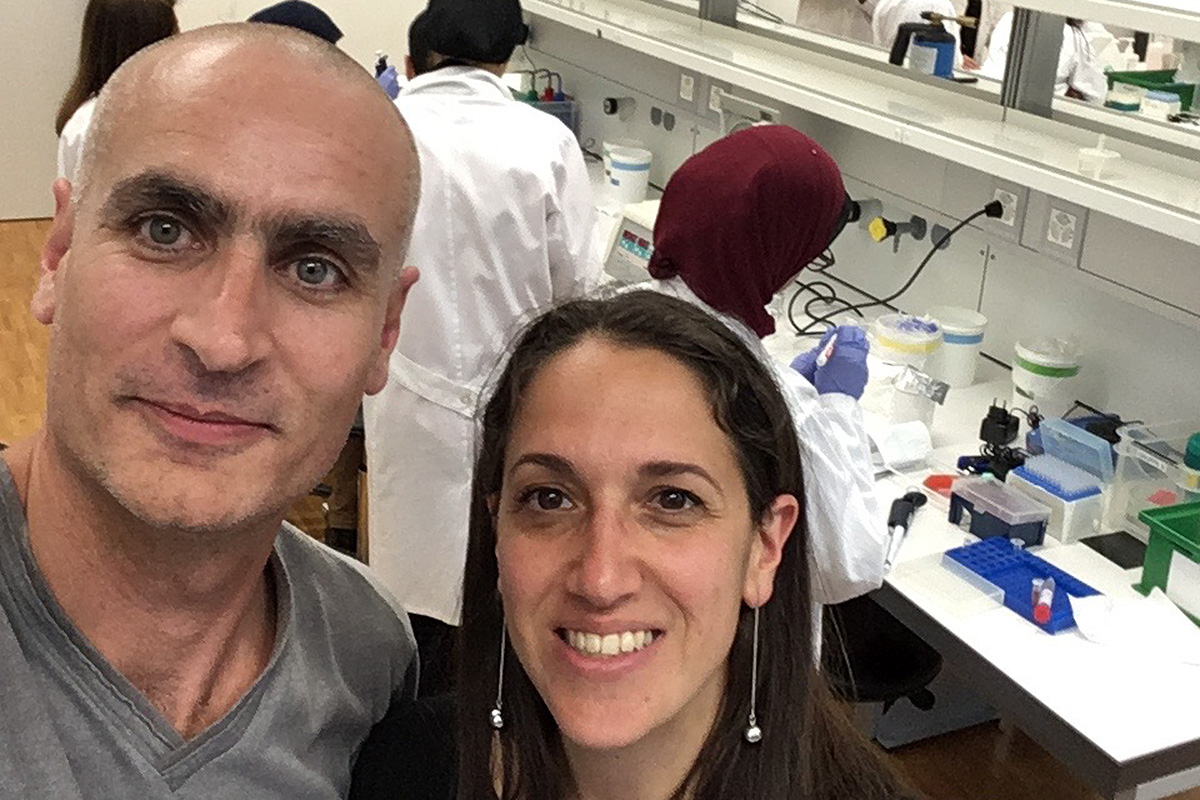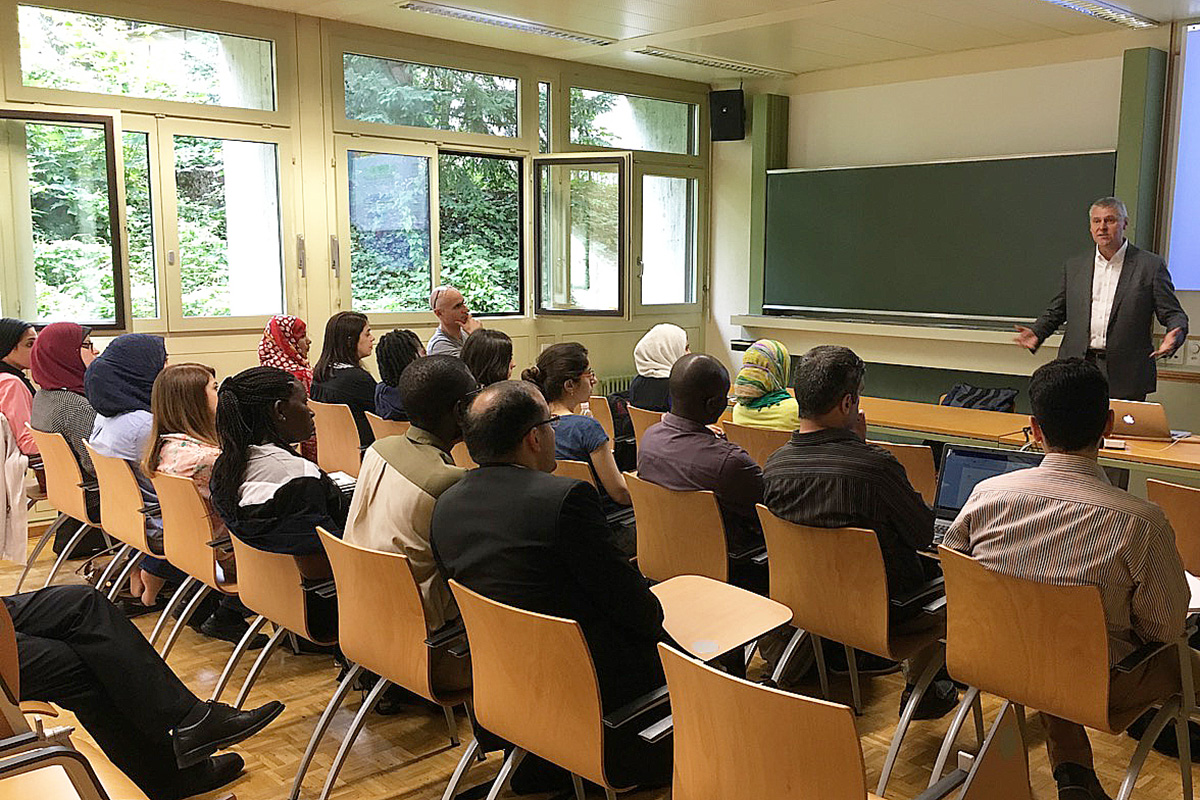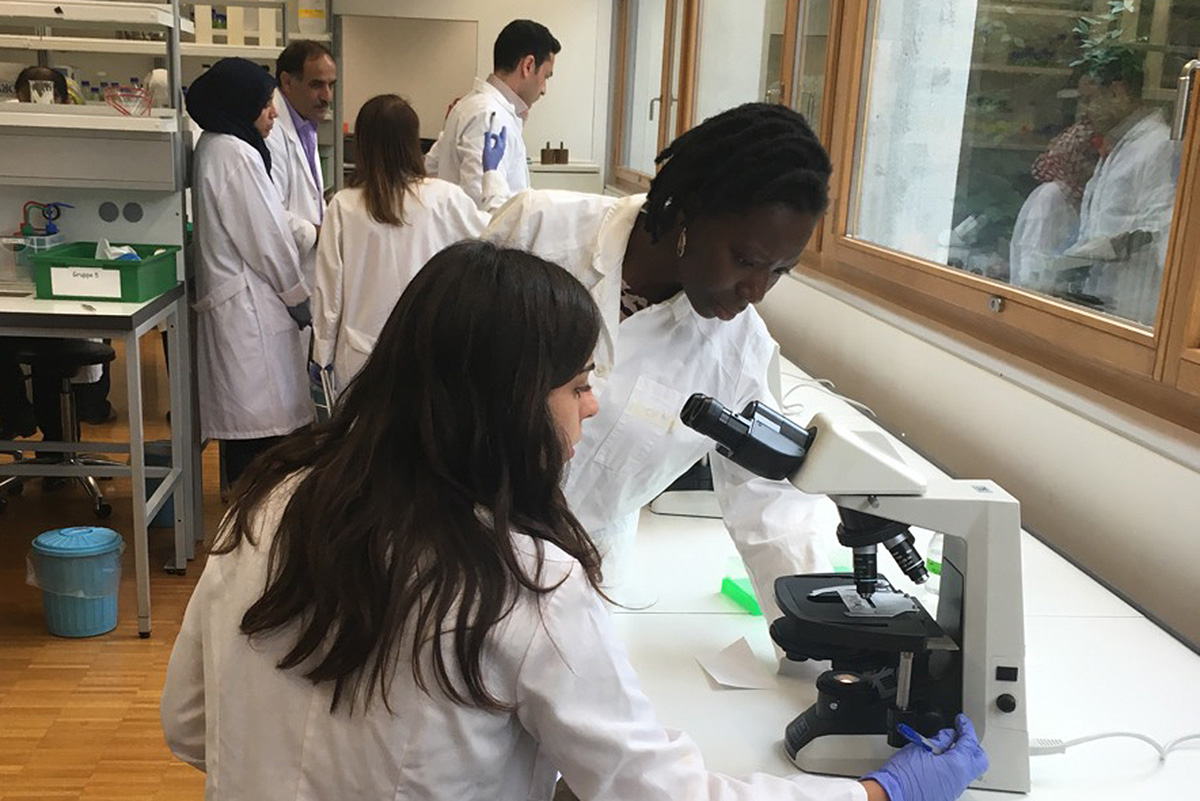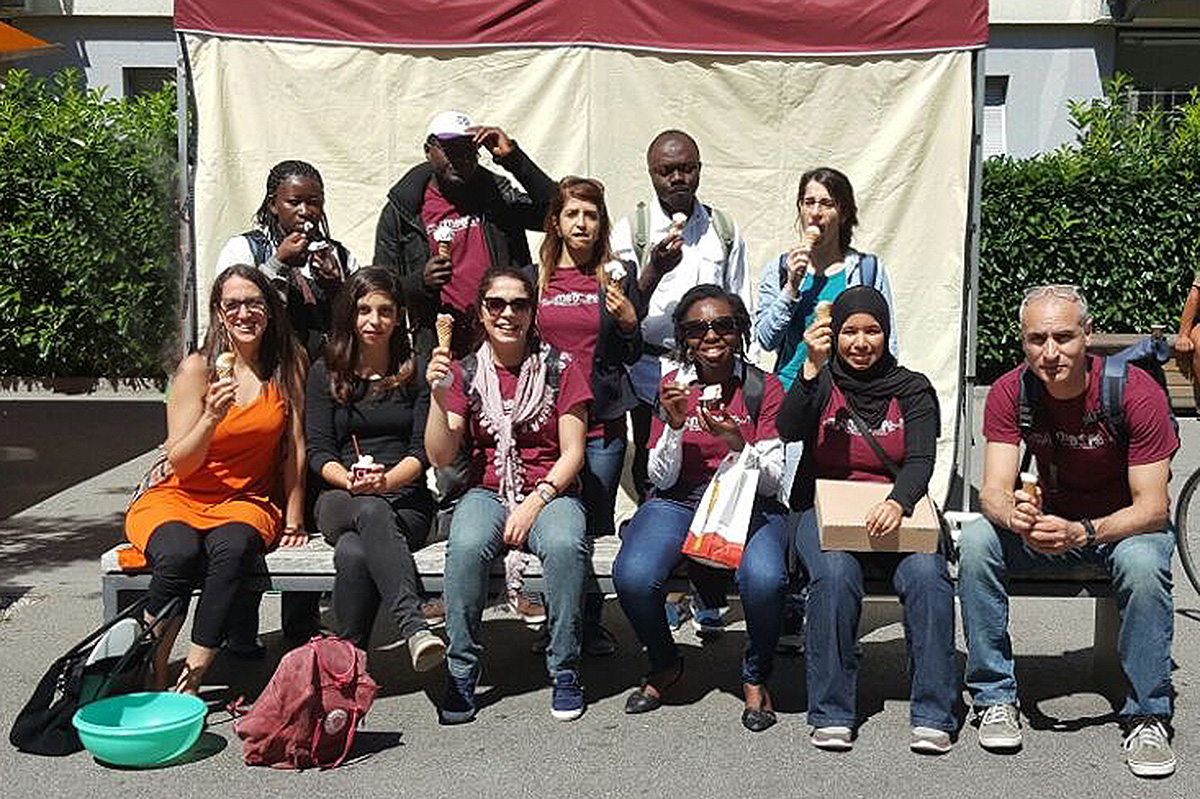Cross-border fight against parasites
The MeBoP (Middle Eastern Biology of Parasitism) Summer School took place for the first time from 25th July to 7th August at the University of Bern. A special feature of the course was that the 17 participants were students, researchers and doctors from countries that are particularly affected by diseases caused by parasites. «uniaktuell» spoke with Isabel Roditi, who played a decisive role in enabling the summer school to be held at the Institute of Cell Biology.
Parasites can cause diseases in humans such as malaria, African sleeping sickness and Leishmaniasis. The aim of the MeBoP Summer School was to convey to students, researchers and doctors from affected areas in the Middle East, North Africa and sub-Saharan Africa the most up-to-date knowledge and techniques in parasitology. At the same time, another aim was to create lasting networks among the participants, and to do this across boundaries – be these of a political, ethnic or religious nature. All participants had to sign a “code of conduct” in advance, in which they undertook to communicate and cooperate across such boundaries. An ambitious aim, when one considers the countries from which the participants had come from: Burkina Faso, Cameroon, Egypt, Ghana, Iraq, Iran, Israel, Lebanon, Nigeria, Oman, Palestine, Saudi Arabia and Tunisia.
Coveted Places at the Summer School
Isabel Roditi is a professor at the Institute of Cell Biology where she leads a research group investigating trypanosomes, single-celled organisms that can cause African sleeping sickness. One notices how important the MeBoP project is to her. She emphasises that the summer school was not initiated by her, but by Dr. Lilach Sheiner of the Wellcome Trust Centre for Molecular Parasitology at the University of Glasgow and Dr. Omar Harb of the University of Pennsylvania.

The two presented MeBoP at an international symposium on parasitology, and called upon colleagues from the community to encourage suitable candidates to apply. In the end, applications were received from 60 people, which, according to Roditi, is an impressive figure for a summer school being held for the first time. The most suitable 17 applicants were invited to the two-week intensive course. They included 12 women. Such a high proportion of women was not the result of a conscious decision, however, says Roditi: “The applications of these 12 participants were simply among the best”.
Broad Support from the University of Bern
Roditi has supported the project from the beginning and ensured that the laboratory and lecture rooms were made available at the Institute of Cell Biology at the University of Bern, and that the finances were administered here. She also used Institute funds to employ an administrative assistant, who organised accommodation and catering. Particular consideration had to be given to the various eating preferences: “We had to find out, for example, in which restaurants the meat was ‘halal’.” Roditi says that the International Office at the University of Bern also made a major contribution, supporting the applicants in obtaining visas among other things. “I was also particularly pleased that Rector Christian Leumann personally welcomed the participants to the University of Bern on the first day with a very heart-warming speech.”

Successful Networking of the Participants
This year the focus was on two diseases, malaria and Leishmaniasis; the latter is an infectious disease that is transmitted from infected sand flies to humans. Each morning, lectures were given by renowned parasitologists, and in the afternoon work was carried out in the laboratory.


Roditi expressed her happiness with the success of the summer school. The communication between the participants was friendly and intense, she says: “I wish our students would engage in as much activity and interaction with the lecturers as the participants of the summer school did.” Roditi hopes that the MeBoP Summer School can continue to be held in Bern for the next two years. After all, the infrastructure would already be in place and it would also be simpler to obtain a visa for Switzerland than for one of the countries concerned, explains Roditi.
The intention was for the participants to benefit from each other and to take knowledge back home with them. An example where the summer school was of particular benefit to the participants was in the field of diagnostics, explains Roditi. She hopes that research can overcome barriers: “I think that as scientists we have many more things in common than differences. When one brings people together in a suitable space such as this summer school, then they notice that too. The situation in some countries is tragic, and I hope that we can contribute something towards an improvement.” The networking also worked beyond the course, she says: several of the participants are endeavouring to work closely together in future in the fight against parasites.
The Middle Eastern Biology of Parasitism (MeBoP) Summer School
MeBoP was initiated and organised by Dr. Lilach Sheiner (University of Glasgow) and Dr. Omar Harb (University of Pennsylvania, USA). The intensive course in parasitology for researchers and health experts from the Middle East, North Africa and sub-Saharan Africa took place from 25th July to 7th August at the Institute of Cell Biology at the University of Bern.
MeBoP was sponsored by the Bill and Melinda Gates Foundation, the Wellcome Trust Centre for Molecular Parasitology and private donors. The Institute of Cell Biology of the University of Bern made premises available and provided administrative and technical support.
About Isabel Roditi

Isabel Roditi (born 1956) is a professor at the Institute of Cell Biology of the University of Bern. She gained her doctorate in 1983 at the University of Cambridge (UK) and in 1990 came to the University of Bern, where she became a full professor in 1999. She has received several awards, including the Cloëtta Prize in 2001 and her first Howard Hughes Medical Institute Award in 2005. In 2009 and in 2012 (together with Reto Brun from the Swiss Tropical and Public Health Institute Basel) she was awarded two Grand Challenges Exploration Awards by the Bill and Melinda Gates Foundation. In 2012 she also received a prestigious “HHMI Senior International Research Scholar Award” from the Howard Hughes Medical Institute. In her research, Roditi deals predominantly with trypanosomes, the parasites that cause African sleeping sickness.
More information on Isabel Roditi’s research group
Contact:
Prof. Dr. Isabel Roditi
Institute of Cell Biology
Baltzerstrasse 4
3012 Bern
isabel.roditi@izb.unibe.ch
+41 31 631 46 47
The Institute of Cell Biology
The Institute of Cell Biology of the University of Bern comprises various research groups that cover a wide range of organisms and experimental techniques and projects. Special focus is, however, placed upon RNA biology, molecular parasitology and developmental biology.